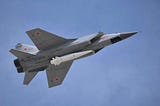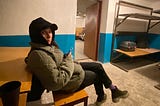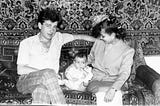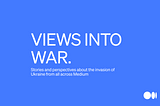"The task of postwar reconstruction of Ukraine already seems to be a huge challenge for Ukrainians and their allies. Reconstruction may take decades and will depend on the amount of financial support and the efficiency with which these funds are used." —Anton Krutikov, historian and political analyst
"Everything since February 2022 has been a scramble to reorient, mobilise and rearm. What the armed forces deserve in Defence Command Paper 2023 is a comprehensive plan to create a two-division centric force that could help face down Putin on land in Eastern Europe, putting Britain firmly into a European leadership role within NATO." —Paul Mason, formerly @ BBC Newsnight
"War has a bit of a chaotic schedule and it really depends on where you live. I live in Kyiv. Here, the war comes and goes in waves. It’s like seasonal work, only that we don’t have seasons — we have Russia’s unpredictable mood instead. Sometimes we can go on for weeks without any war-related errands to attend. Sometimes war happens every day." —Anton Kutselyk
"Waking up from the sounds of explosions is still the worst feeling in the world.
I shake uncontrollably: it’s scary yet irresistible to listen. One after another — it. just. doesn’t. stop. It’s too late to run to the metro station now… I have to wait it out and hope for the best. Where is everyone at?" —Anastasia Lebedenko
"Truth is that reality of this war could be our way of life for years to come. We know they will not stop, their desire to destroy is relentless, their resources barely even tapped." —John Gordon Sennett
"Meeting this war in Europe, I also quickly realized that the Ukrainian language was my weapon. Hearing the Russian language on the street triggered a sense of danger, so I felt immediately conflicted speaking it. Speaking Ukrainian, on the contrary, was a signal to any refugees abroad: 'I share your pain, my fellow citizen. You’re safe in this space with me.' Language became a way to distinguish 'us' from 'them,' my fortress, and border." —Anastasia Lebedenko
Feb 12, 2023
"I thought about that for days until I realized I could not call myself a leader if I left my organization and society during a massive crisis. What example would I set?" —Oksana Matiiash
"We have lived through a very dark year, but that doesn’t mean that we’re used to it, that we can continue to tolerate it or that we don’t have aspirations for better." —Anton Kutselyk
"My main work in Ukraine is I direct the NGO Safe Passage 4 Ukraine. We started with the intent to help Ukrainians fleeing the war and use airline miles and hotel points to allow them to join family members in the U.S. or Canada." —Rachel Jamison
"Two photographs from Ukraine, taken 81 years apart, bookend the truth of that country’s complex Holocaust legacy — one that doesn’t square with the Kremlin’s distorted narrative." —Edna Friedberg, historian at the U.S. Holocaust Memorial Museum
"In recent three months, Russia has been conducting regular terrorist attacks against Ukrainian energy infrastructure. Amazingly, the Ukrainian energy system still works, and long blackouts have happened only several times in Kyiv. Still, most days we have multiple power outages for many hours each as the government is trying to balance electricity and keep critical systems running." —Anton Protsiuk, editor at Ukrainian Wikipedia
"This visit is extremely symbolic. It’s also the first time that the president travels by train into a war zone we do not control. Given the risks involved, and a ten-hour trip each way, I can only imagine how nervous the Secret Service was. But the ultimate symbol of American power over the last sixty years, Air Force One, did not land at Kyiv airport." —Nadin Brzezinski
War analyst Tom Cooper's latest in a series of weekly breakdowns on the invasion.
"This war has made me a keen student of history. History has taught me to put my faith in persistence rather than in chance." —Ukrainian writer Marta Khomyn
"From that moment on, Russian soldiers lived in our house. They kicked down the gates with their APC, parked it by the house and settled as if they were tenants." —Nastya, a student from Kyiv (as told to The Ukrainian View)
"Everyone is trying to cover their fear with humor. No one doubts our victory." —Katya Savchenko, survivor of Russia's attack on Bucha
"We want to stop the war. We want to protect the lives of our loved ones. We want peace and we want to help our homeland. We can and will continue to do this work until we achieve our goal." —Kristina Zakharchenko
“Two nations riding fundamentally incompatible historical narratives have crashed. The stakes could not be higher, and not simply because Russia fears NATO expansion, but because Russia fears losing its brother, losing its family, and thus losing itself.” —Noah Sneider, former Moscow correspondent for The Economist
"We left as Jewish refugees in 1994 and live in America. This is how it feels to watch from afar as your homeland is attacked." —Alex Dobrenko
Our collection of perspectives on the start of the war, featuring essays and perspectives from historians, journalists, and Ukrainian citizens.






































